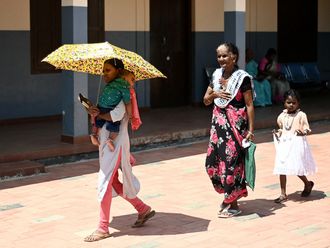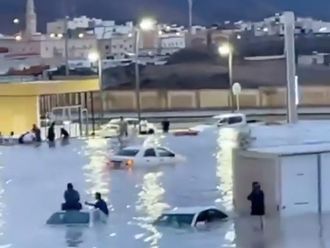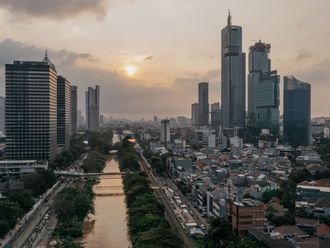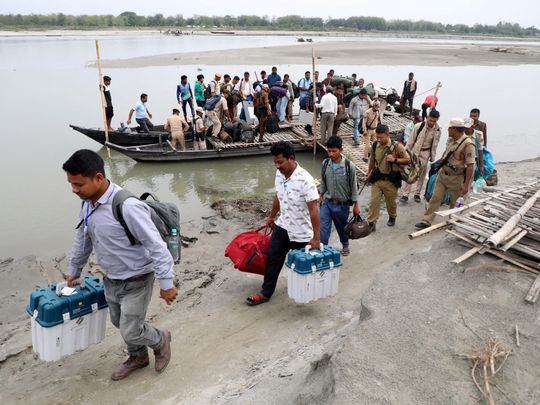
NONGRIAT, India: India was preparing on Thursday for the world’s largest general election, as polling officers clambered up hills, travelled deep into areas riven by violent insurgencies and crossed rivers to reach millions of voters across the sprawling nation.
The first vote in the seven-phase election will be cast on Friday, with results set for June 4, as Prime Minister Narendra Modi looks set to win a historic third term in the face of a straggling opposition challenge.
The Election Commission has to set up more than 1 million polling stations for the nearly two-month duration, with 15 million officials and security personnel fanning out for the task.
“Whether the polling officers have to climb down mountains, go through rivers or fly by choppers, the Election Commission is doing its job to ensure that nobody misses out on their voting rights,” said W. Moning Belgit, one of its officials.
He was speaking after having led a small crew that trekked for hours on Thursday to reach 139 voters in a remote, hilly village in the eastern state of Meghalaya.
His team went up 12 km (7 miles) of mountains, climbed down hundreds of steps and crossed a river to reach the village of Nongriat, where they will set up a polling booth under the thatched roof of a school.
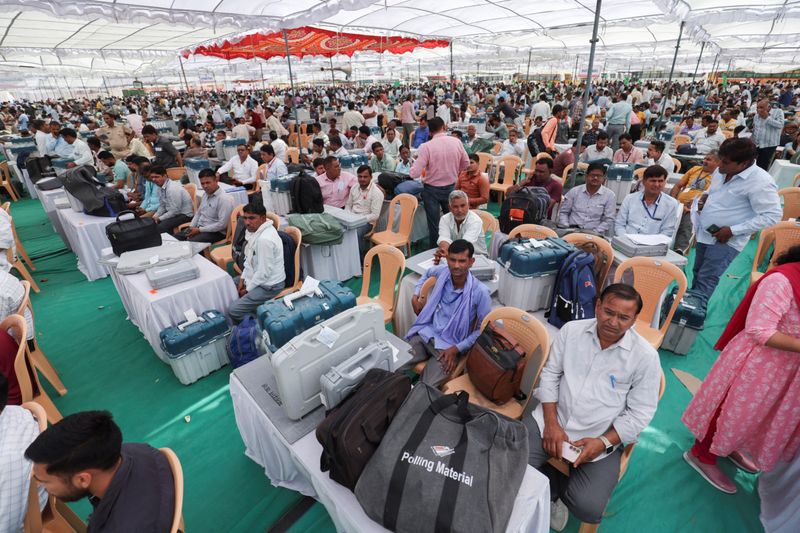
In Friday’s first phase of voting in 21 states and territories, as many as 102 constituencies will exercise the franchise, from a total of 543 in the lower house of parliament.
The effort is the “world’s largest election mobilisation exercise of man and material”, the Election Commission said in a social media post on Wednesday.
Scores of polling officers have been flown to remote areas in the rugged Himalayas and the central Indian constituency of Gadchiroli-Chimur, beset by Maoist violence, to which 850 polling staff are being sent, the poll body said.
Besides the insurgents, officers must keep a lookout for a wild elephant roaming the Gadchiroli area after killing two farmers, although trackers are trying to keep it from further mayhem, the Indian Express newspaper said.
968 million eligible voters
All Indian citizens aged 18 and above are eligible to vote - that’s 968 million people, according to the election commission.
Turnout during the last national elections was more than 67 percent, with nearly 615 million people casting a ballot.
India uses electronic voting machines that allow for faster counting of ballots.
The election commission says there is no way to connect to the machines remotely and no way to compromise the results.
Election officials travel by foot, road, trains, helicopters, boats, and occasionally camels and elephants to set up polling stations in remote locations.
They are sometimes accompanied by security forces in areas with a history of insurgent violence.
The sheer number of voters means that every time India holds a national election, it marks the largest exercise of the democratic franchise in human history.
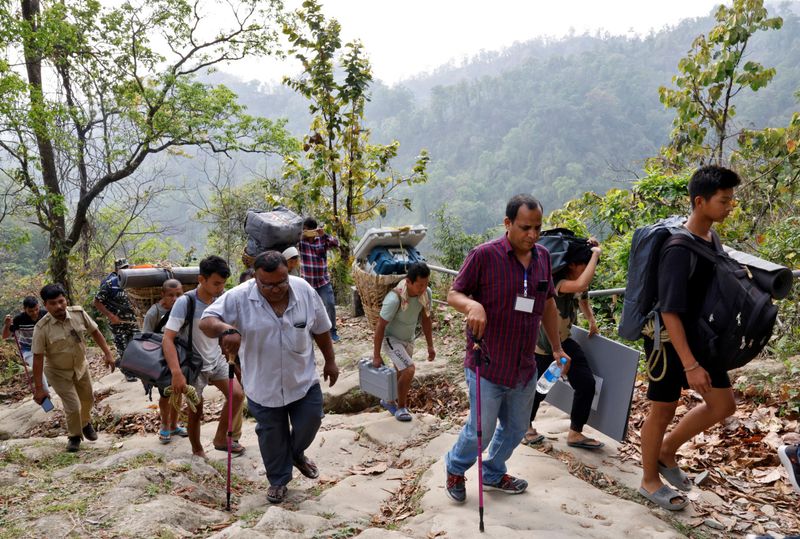
A total of 15 million people will work the polls, including people temporarily assigned from elsewhere in the civil service.
Complicating the challenge are electoral laws requiring that each voter is no more than two kilometres (1.2 miles) away from a polling booth.
During the last election in 2019, for example, a polling booth was set up for a single voter living deep inside a forest in the western state of Gujarat.
Organisers say it is impossible to operate the 1.05 million polling stations needed around the country on a single day.
To ease the immense logistical burden, voting is staggered over six weeks starting from April 19.
Local weather, religious festivals, farm harvests and school terms are also taken into account to make sure voters in each corner of India can go to the polls at the most convenient date.





